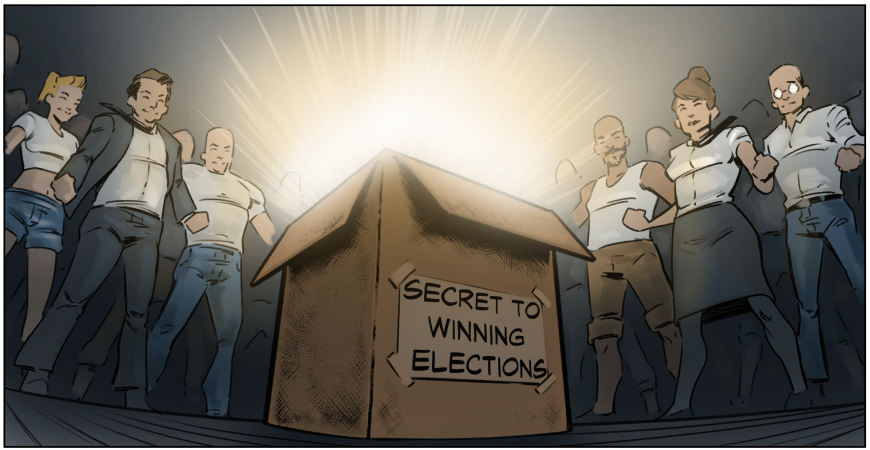Not easy, but simple.
Like almost everyone who has turned their hand to providing strategic political advice, I’ve had my wins and losses.
What I’ve learned is that nearly every winning election effort has the same qualities, as does almost every election loss.
The key ingredients for winning an election are ensuring that your priorities as a potential government reflect the priorities of the electorate at the time of the election, then effectively communicating those priorities to voters.
Having the same priorities as the electorate at the time of the election involves having an accurate view about what the social, economic and political circumstances will look like on election day, then rigorously engaging with the community and stakeholders about their hopes and fears, as well as the best way of addressing these and the issues that will emerge.
Effective communication involves positioning early for the issues that will matter at the time of the election, then relentlessly building your brand using a range of communication tools, so that your time arrives at the time of the election. When the polls open, you want everyone to understand both what you believe and what you will do, on the issues that matter to them.
So, if it’s so simple, why does it go horribly wrong, so often?
For those in opposition, too often we see a complacency built on the adage that “oppositions don’t win elections, governments lose them”. While there is some truth in the second part of this equation (see below), the first part is nonsense. Whether it was Bob Hawke, John Howard, Kevin Rudd or Tony Abbott, not to mention Richard Court, Geoff Gallop or Mark McGowan, each of these leaders who won government from opposition were energetic and relentless in their pursuit of power, as were the party machines behind them.
Oppositions who think they might slip into government often don’t do the work engaging with the electorate, they don’t develop policies that reflect the priorities of the community and they don’t spend the time building their brand or effectively communicating what they believe and will do.
Governments that lose are almost always characterised as having lost touch with the electorate, leading to them pursuing their own priorities or the causes of special interest groups, instead of the priorities of the community. Their leaders and senior Ministers are often exhausted, lacking the energy to consider how the world is changing, engage broadly with the electorate, develop new ideas or effectively communicate their vision. In some cases, this leaves them so disconnected from voters that they think they are going to win, right up until the moment they are turfed out in a landslide.
For those in the private sector, none of the above should come as any great surprise. Behind almost every successful project is a company that has spent the time engaging with the community about what they want, then carefully developing their project to meet those needs, before circling back to ensure their stakeholders are in no doubt about the merits of their venture. The same is true for companies involved in product development and promotion.
Companies that don’t adhere to this process lose the support of the community, or they lose market share. The same is true for our politicians.
The key thing to understanding my two ingredients for political success is recognising that they need to co-exist. The most effective communication strategy can do more harm than good, if it promotes policies and messages that don’t reflect the priorities of the community. Similarly, what’s the point of having great policies, if the electorate doesn’t know about them?
At the top of this piece, I said the formula for winning elections was simple, but not easy. The truth is politics is hard, with the responsibilities of government making it even more draining.
But, for those politicians who maintain their energy and focus, ensuring their priorities reflect the priorities of the electorate at the time of the election, then effectively communicating those priorities to voters, political success is almost certain to follow.
 ReGen Strategic
ReGen Strategic